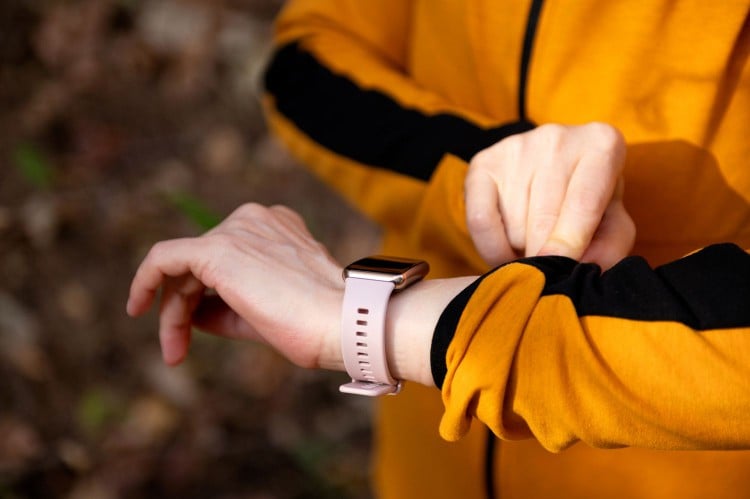Biotin for Hair Growth: Does It Work

Are you looking for ways to thicken your hair, restore its luster and make it more manageable? If so, biotin is worth exploring. Biotin is a vitamin-B complex beneficial for healthy hair, skin, and nail growth. It's most commonly used as a natural supplement to encourage thicker, stronger-looking hair and, in some cases, reverse excessive shedding. But does biotin work?
In this blog post, we'll investigate whether or not this miracle vitamin can live up to its hype鈥攁nd if there are any potential risks we should be aware of before taking it.
What is Biotin and How Does It Help with Hair Growth
Biotin is a B-vitamin complex that has been studied for its potential to promote hair health. It's naturally found in certain foods and is often taken as a supplement to support healthy hair growth and thickness.
Studies have shown that biotin may be effective in increasing the rate of hair growth and reducing shedding. It's believed to work by helping the body metabolize proteins, which are essential components of hair follicles. Taking biotin supplements also helps keep scalp and follicle health in check, allowing hair to grow normally.
Additionally, biotin is thought to have antioxidant properties that can protect against stress-induced baldness and promote healthy blood circulation to the scalp, which can encourage follicle health. Biotin is also associated with increased sebum production, a natural oil that helps keep hair moisturized and healthy-looking.
Pros and Cons of Taking Biotin for Hair Growth
Taking biotin for hair growth has several potential benefits, including promoting thicker and stronger hair, reducing shedding, and supporting scalp health. For those looking to promote healthy hair growth, biotin may be an effective supplement to add to their routine.
However, it's important to note that while biotin is safe for most people, some potential side effects should be considered before starting a supplement. For example, if taken in high doses, biotin may interact with certain medications and cause low blood sugar. Additionally, too much biotin may cause skin rashes or acne breakouts due to its effect on oil production.
Finally, it's important to note that biotin is not a miracle cure for hair loss or thinning. While it may help support healthy hair growth, taking biotin alone cannot reverse the effects of age-related balding or any underlying medical conditions. Before starting any supplement, be sure to consult with your doctor about potential risks and health benefits.
Recommended Dosage for Taking Biotin
The recommended dosage of biotin for hair growth varies depending on age and other factors. Adults should take between 30-100 mcg of biotin daily to promote healthy hair growth. However, if you're pregnant or nursing, you must consult your doctor before taking any supplement, as the risks may outweigh the benefits.
It's also important to note that biotin is fat-soluble, meaning it needs to be taken with food for optimal absorption. Taking biotin on an empty stomach can reduce effectiveness and cause nausea or other digestive issues.
Regarding hair growth, biotin can take up to 6 months before noticeable results are seen. The most important factor is consistency鈥攖aking biotin regularly and at the recommended dosage will give you the best chance of making a difference in your hair health.
Additionally, it's important to remember that biotin should be taken along with other healthy lifestyle habits. Eating a balanced diet rich in protein, vitamins, and minerals and exercising regularly can help ensure your hair grows as strong and healthy as possible.
Possible Side Effects Of Taking Biotin
Taking biotin for hair growth is generally considered safe, but there may be some potential side effects when taken in large doses or combined with certain medications. Some of these side effects can include:
Digestive Issues:
Too much biotin has been linked to nausea, vomiting, and other digestive issues. If you experience any of these side effects, reducing your dosage and talking to your doctor is best.
Low Blood Sugar:
Biotin can interact with certain diabetes medications and cause low blood sugar levels. If you take diabetes medication, speak with your doctor before taking biotin as part of your hair care routine.
Skin Irritation:
Biotin can increase oil production, which may lead to skin irritation and breakouts. If you have sensitive skin or are prone to acne, it's best to start with a lower dosage of biotin and watch for any signs of irritation.
Allergic Reactions:
Some people may experience an allergic reaction to biotin, which can cause redness, swelling, and itching. If you experience these symptoms after taking biotin, it's important to stop taking the supplement immediately and consult your doctor.
Foods That Contain Natural Sources of Biotin
Foods containing natural biotin sources include whole grains, nuts, seeds, and legumes. Whole-grain cereals are a great way to start your day with a healthy dose of biotin, while nuts and seeds like almonds and pumpkin make great snack options. Legumes such as lentils, beans, and chickpeas are also excellent biotin sources packed with additional vitamins, minerals, and proteins.
Eggs also contain natural sources of biotin and other nutrients like vitamin D and Omega-3 fatty acids. Eating an egg for breakfast is a great way to start your day with a healthy dose of biotin and other important vitamins and minerals.
Organ meats like the liver, kidneys, and heart are all excellent sources of biotin. While these foods may not be as popular as other types of meat, they are packed with nutrients that can help support healthy hair. For a healthy dose of biotin, try adding organ meats to your diet a few times per week.
FAQs
Q: What is biotin?
A: Biotin, or Vitamin B7, is a water-soluble vitamin found naturally in many foods like eggs, nuts, and legumes. It's also available in supplement form and has been used to help promote healthy hair growth and restore luster to thinning or damaged hair.
Q: Does biotin work for hair growth?
A: Studies have shown that biotin may help improve the condition of your hair, skin, and nails. It's thought to do this by providing essential nutrients needed for healthy cell production and helping to speed up the rate at which cells can divide and grow. While there is no definitive proof that biotin can cure hair loss, some people may see positive results from taking it.
Q: What other supplements may be beneficial for healthy hair growth?
A: Besides biotin, certain herbs and vitamins help promote healthy hair growth. These include zinc, iron, vitamin C, omega-3 fatty acids, silica, and saw palmetto extract. Additionally, a balanced diet rich in fruits and vegetables can provide the nutrients your body needs to promote healthy hair growth.
Conclusion
Biotin may be an effective way to help restore luster, thickness, and shine to dull or damaged hair. While taking biotin supplements is generally safe, speaking with your healthcare provider before beginning a supplement regimen is important. In addition to taking biotin, eating a balanced diet and incorporating other vitamins and herbs may help promote healthy hair growth.
This post has provided information about biotin for hair growth鈥攂ut ultimately, it's up to you to decide if the potential benefits are worth the risk.






:max_bytes(150000):strip_icc()/Health-GettyImages-1244575423-991d1ebe9942424f9bb35b650fb5ff11.jpg)





